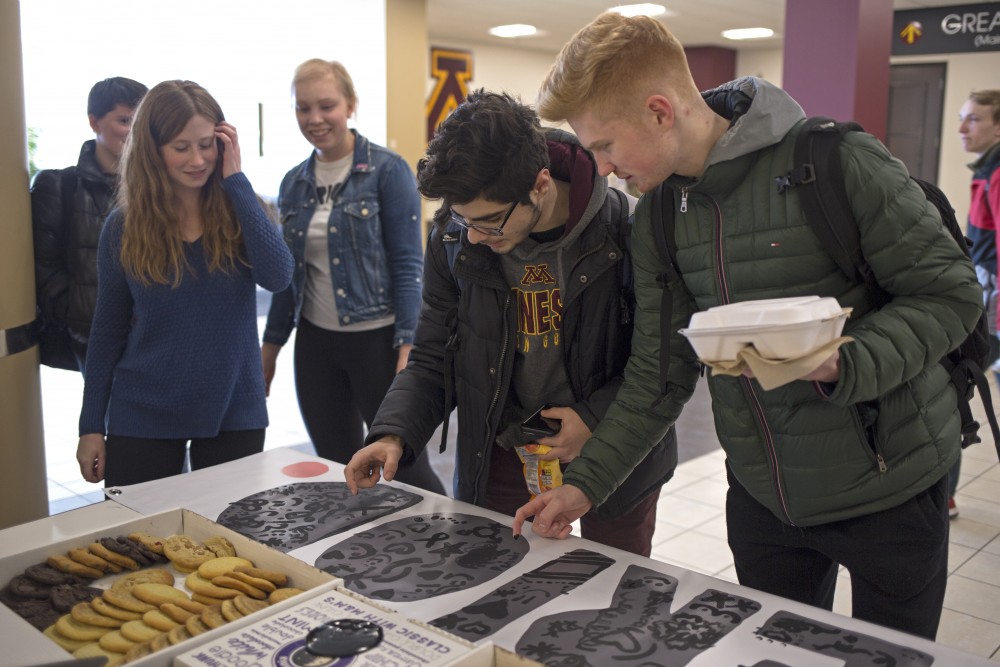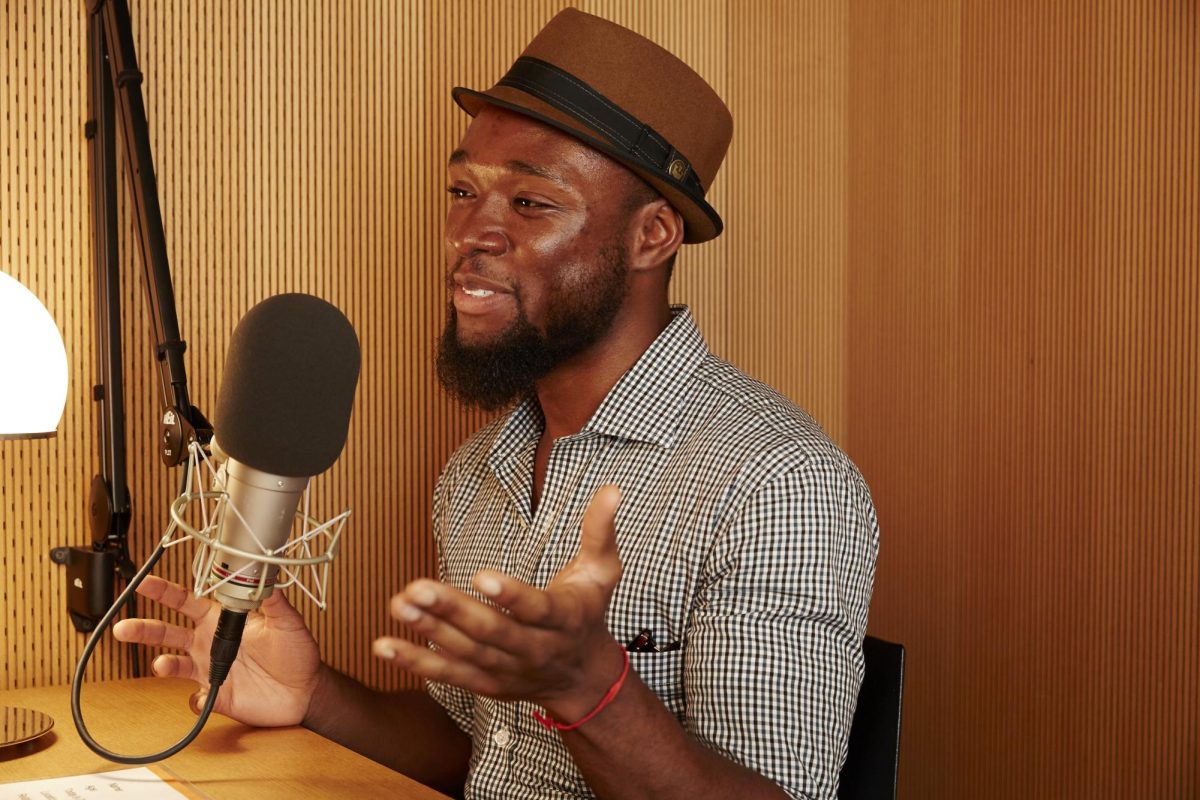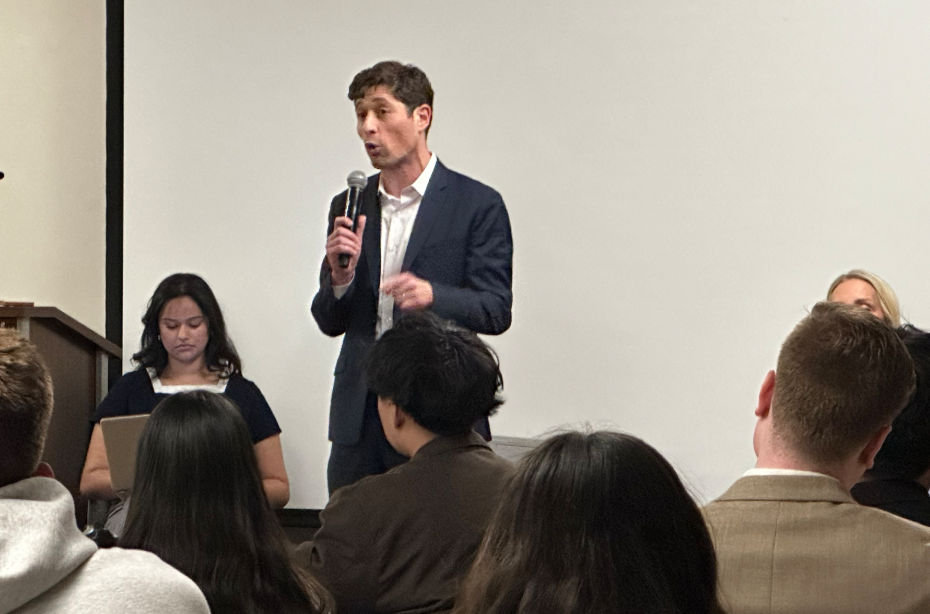As students struggling with food insecurity see increased on-campus help, a new group on campus is bringing light to a different kind of insecurity — a lack of access to menstrual care products.
This fall, a group of five students at the University of Minnesota formed a branch of Period, called Period.MN, an organization that works to provide tampons and pads for those who cannot afford them.
Last week, the group held its first event, a community art project called a “Menstruation Station,” in Coffman Union to raise awareness about the issue.
Participants helped to finger-paint a mural and were posed with the question of whether they wanted a napkin or a cookie once their hands were covered with paint. The project illustrated a choice many low-income and homeless menstruators have to make each month.
“We wanted to do something interactive and we wanted to do something that would make people really realize what our mission [is] and who we’re fighting for,” said Jennifer Day, a co-founder of Period.MN and vice president of programming.

After learning about the international nonprofit her first year of college, biomedical engineering junior Gabriella Haire was inspired by the uniqueness of the cause.
Haire said she saw an opening for a regional director in the Midwest, applied for the position last summer and recruited four friends — including Day — to start a chapter at the University of Minnesota.
Day said part of Period’s mission is to remove stigma from the topic, which is often shamed or not openly discussed in mainstream culture.
She added it’s harder to recruit non-menstruators to become involved or care about the cause since it doesn’t directly affect them.
Haire, the president of Period.MN, said the group is more focused on outreach in the Twin Cities community, since tampons and pads are already provided in the women’s and gender-neutral bathrooms on campus.
She added that Minnesota doesn’t apply the luxury tax to menstrual products, which many Period chapters are fighting against in other states.
Right now, the group uses its national partnerships with brands like Kotex and Tampax to donate period packs to local shelters in the Minneapolis area, Haire said.
She said the partnerships give them access to discounted products, so each period pack costs $2, supplying a full menstrual cycle.
Haire said it’s likely that students who struggle with food insecurity also struggle to afford menstrual care products.
Haire said she hopes to partner with Nutritious U and provide period packs at their on-campus food pantry in the near future.
Clara Holder, a sophomore studying nutrition and a member of the U Students Like Good Food student group, said it makes sense that students who are food insecure might also struggle to afford menstrual products.
“It was never something that came up in my mind,” Holder said. “But it definitely makes sense.”
She said data collected from Nutritious U showed that about one in 10 students are food insecure.
Haire said it’s fair to estimate that about half of food insecure people struggle to afford menstrual care products, since about half the population menstruates.
Day and other members hope future events can help raise awareness about the issue.
“I’ve had the luxury of always being able to menstruate sanitarily,” Day said. “It had never crossed my mind.”








